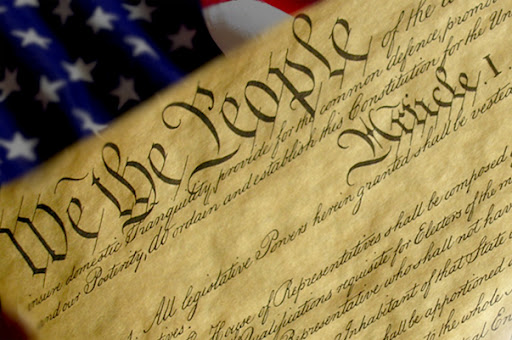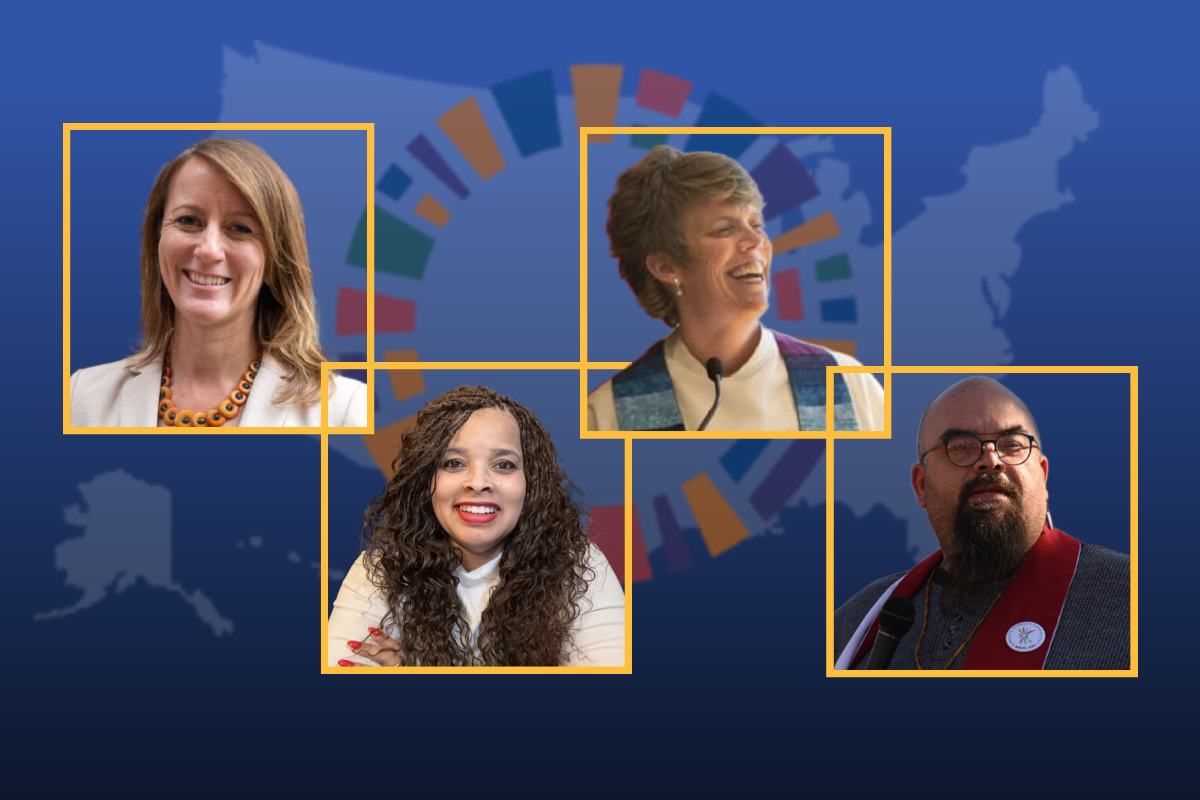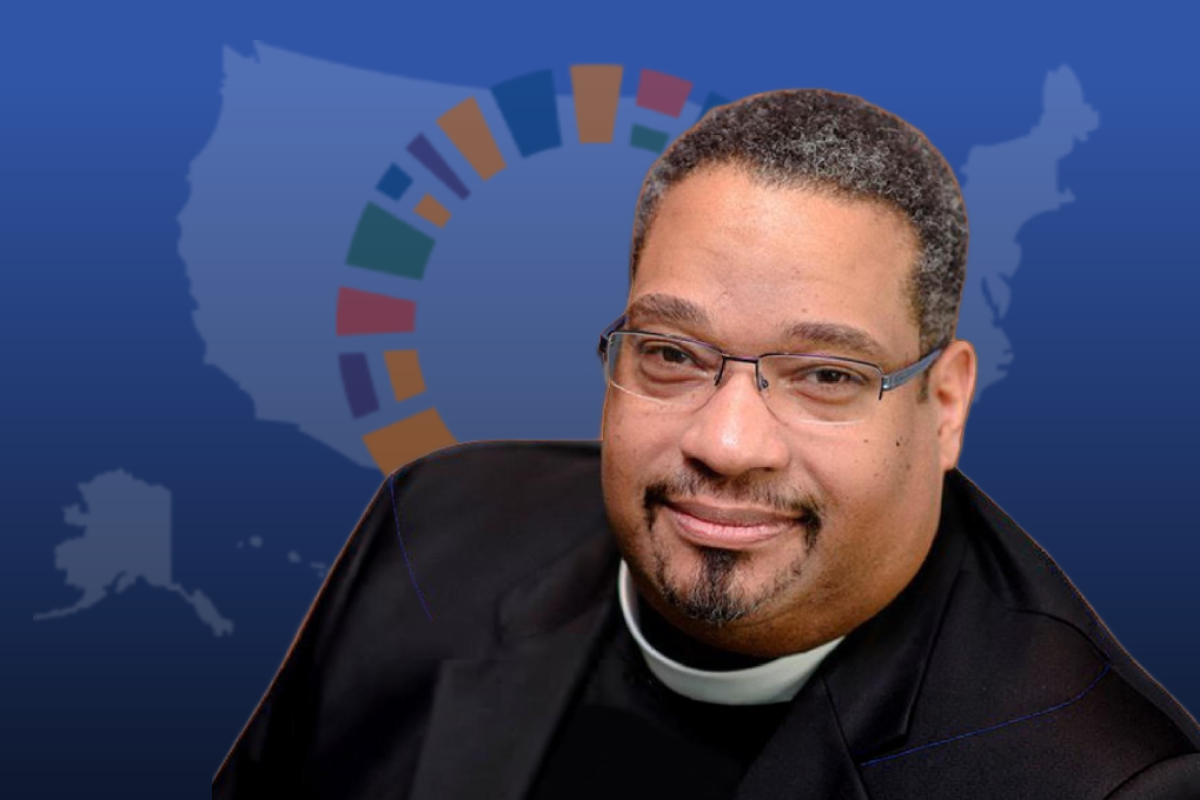We’re a collective force for
Healthy boundaries between religion and government
We insist that religion should not be used to legitimize discrimination, and are rallying faith-based support for LGBTQ freedom.
Get Involved
We believe in the separation of church and state
Religious freedom is one of several fundamental rights outlined in the First Amendment of the U.S. Constitution. It includes two complementary protections – freedom of religion and freedom from religion. Freedom of religion protects our ability to follow the religious tradition of our choice, or no religion at all, without facing discrimination or punishment. Freedom from religion prevents the government from codifying religious beliefs into law,
favoring religion over non-religion, or giving special treatment to adherents of one faith and not others. The right to religious freedom is unalienable – but it’s not unlimited. For every American to believe as they choose, we can’t impose our beliefs on others. Religious freedom does not include the right to coerce, shame, or exclude others from public life because they don't share our beliefs. These protections are necessary to ensure religion and democracy thrive. But there is a concerted effort underway by far-right extremists to distort the meaning of religious freedom. Members of this movement seek to enshrine their beliefs into law, undermine basic civil rights protections, and concentrate power in the hands of a select few – at the expense of everyone else.

Tell Your Senator: Support the Do No Harm Act
True religious freedom protects the freedom to believe as we choose, without fear of discrimination or harm. In an increasingly diverse nation, it is imperative that our federal laws make clear that freedom of belief does not include a license to discriminate.
resources
Religious freedom resources

We champion an inclusive vision of religious freedom through strategic “friend of the court” advocacy and by spotlighting federal cases that impact the boundary between religion and government.
The wall of separation between church and state protects religious institutions as much as it protects our government. Religious communities have the freedom to share their teachings without government interference, provided the public sphere remains open to all.
Interfaith Alliance brings together Americans of diverse religious groups to protect the separation of religion and government and ensure that all of us maintain the right to believe as we choose.
To learn more about our religious freedom work, please contact Guthrie Graves-Fitzsimmons at [email protected].
We champion an inclusive vision of religious freedom through strategic “friend of the court” advocacy and by spotlighting federal cases that impact the boundary between religion and government.
The wall of separation between church and state protects religious institutions as much as it protects our government. Religious communities have the freedom to share their teachings without government interference, provided the public sphere remains open to all.
Interfaith Alliance brings together Americans of diverse religious groups to protect the separation of religion and government and ensure that all of us maintain the right to believe as we choose.
To learn more about our religious freedom work, please contact Guthrie Graves-Fitzsimmons at [email protected].
Interfaith Messaging Guide: Faith and Democracy in the Face of Authoritarianism
Read the guide Memo on Trump's Opening Attacks on Faith Communities
Read the memoCountering the Misuse of Religion to Discriminate
Read the fact sheet
Pluralism is Democracy in Action
On July 4, America will mark 250 years since the signing of the Declaration of Independence. That day in 1776, the nation’s founders put forward a bold vision for a new democratic experiment, one rooted in shared values, with power derived from the people rather than imposed by a monarch or religious authority:

Courage in Community: Minnesota Faith Leaders Respond to ICE Crisis
Host Rev. Paul Brandeis Raushenbush talks with four Minnesota faith leaders on the ground defending their communities against ICE attacks: Rev. Susie Hayward, Rev. Dr. Rebecca Voelkel, Rev. Jim Bear Jacobs, and Rev. Dr. Jia Starr Brown.
Let's build a democracy that works for all people
Together, we can make a significant impact in this pivotal moment in our nation's history.



